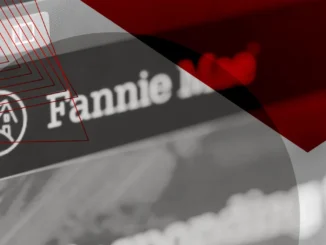
In an update to its selling guide, Fannie Mae announced Wednesday that it was expanding the use of attorney opinion letters in lieu of title insurance.
Previously, the only transactions ineligible for an AOL were those that involve loans secured by a unit in a condo project, co-op share loans, loans secured by a dwelling on a leasehold estate, including leasehold estates on property owned by a community land trust, loans secured by a manufactured home, HomeStyle Energy and HomeStyle Renovation loans, Texas Section 50(a)(6) loans, loans secured by property subject to restrictive agreements or restrictive covenants, and loans executed using a power of attorney.
Under the new selling guidelines, Fannie Mae said it would allow AOLs to be used on “loans secured by a unit in a condo project” and “loans secured by a property subject to restrictive agreements or restrictive covenants.”
Fannie Mae first announced that it would accept loans secured with an AOL in lieu of title insurance in limited circumstance in April 2022. The government sponsored entities is part of its Equitable Housing Finance Plans, which are required by their regulator Federal Housing Finance Agency (FHFA).
The initial version of the GSE’s Equitable Housing Finance Plans were approved in the summer of 2022 by the FHFA.
The American Land Title Association has been a vocal critic of AOLs since Fannie Mae’s announcement nearly two years ago.
In an emailed statement, ALTA CEO Diane Tomb, said Fannie Mae’s expansion of AOLs will expose additional consumers and lenders to risk and weaken protection of property rights.
“Attorney opinions are merely a statement of professional judgment and disclose only those defects found in a review of public records. About a third of all claims paid by title insurance companies are for issues that cannot and would not be found in a public records search,” Tomb wrote. “Unregulated title insurance alternatives, such as AOLs, simply cannot replace the protection of title insurance.”
Tomb also noted that ALTA was troubled by the fact that Fannie Mae’s announcement came without any discussion with the title insurance industry.
“Housing policy has always worked best as a public-private partnership, and that is how these decisions should be made, with the opportunity for collaboration with experts from affected industries to ensure the best outcomes for consumers,” Tomb wrote.
In an emailed statement, a Fannie Mae spokesperson wrote that the GSE is continuing to explore ways to improve housing affordability by reducing closing costs.
“Housing affordability is key to Fannie Mae’s mission, and we remain committed to our ongoing engagement with industry partners and providers to explore ways to make the homebuying process more affordable and accessible in a manner that does not increase risk for borrowers, lenders, and the marketplace,” the statement read.
Earlier this month the Community Home Lenders of America submitted a letter to the FHFA expressing its support for the use of AOLs. In the letter, the CHLA said it believed the use of AOLs in certain instances could help improve homeownership affordability challenges.



